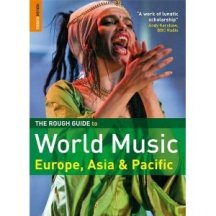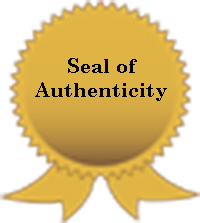ABSOLUTELY AMAZING! — That is how I describe the concert we just gave on Saturday night. The room was absolutely electric and we sang our very best. Bravo to everyone. What a term we’ve had, and what an amazing year. There are so many people to thank. Please help me in expressing gratitude to everyone involved. There are so many. I am doing formal “thank you’s” to many of our key players (soloists, percussionists, etc.). But, there are some who don’t always get thanks for doing crucial work. To produce a concert of this magnitude it really is a community effort. Here are some crucial, behind-the-scenes people to remember. No one applauds for these people. They don’t get time on stage or in front of hundreds of adoring fans. So, please thank them if/when you see them or by email:
Angelica Allen (musicast@uwaterloo.ca) — Angelica was our main coordinator in the office for this project. She formatted and printed the program, ran the house, did the bulk of the correspondence with instrumentalists, did the check requests, etc. etc. I think she likes chocolate; I’m not sure about wine. But, I will check. She even rented and drove the van on Friday and Saturday, overseeing the moving of the equipment to and from Grebel. Thank this person!
Laura Gray — Our music department chair. Laura kept a close watch on all the details (via Angelica of course) and literally saved the day a few times as various personnel had to leave us for one thing or another. It simply cannot happen without a dedicated and selfless chair like Laura. Please tell her “thank you” when you can or simply bow respectfully as you pass her office door at Grebel. I should also tell you that she has never missed one of our concerts. That is very impressive, as the chairs are very busy especially at the end of the term (i.e. right now) I am not recommending you contact her by email because I know she’s had the worst technological disasters I’ve heard of this term. So, please thank her in person if you have the opportunity.
John Brownell — (brownell@york.ca) timpanist extraordinaire and percussion coordinator. When we changed the date of the concert we lost our percussion coordinator. John stepped in and gathered together the crack percussion team we had at the concert. None of them could squeeze in a rehearsal prior to dress rehearsal. So, that’s right, they did it in one rehearsal. Which means they were good enough to make adjustments and changes/improvements during the concert. I think we should have a big card for him. I’ll bring it tomorrow night for all of us to sign. He’s a super busy guy working freelance, York University, and Grebel. But, I don’t think he’d mind a few thank you emails from us.
Jody Waardenburg (jwphotography89@gmail.com) — Jody has been doing the brilliant still photos of us at dress rehearsals and concerts for the past two years. She’s a WLU music student and journalist in training. So, she has a particularly good eye for performance photography. She makes us look good! Please send her a big thank you. I’ll be posting pics soon.
Joanne Berlett (joanne@stmichaelw.ca) — Joanne coordinates things at St. Michael’s Catholic Church. She has been extremely good to us during the scheduling process, as has the pastor of the parish, Reverend (Father) Con. A thank you is in order. . . . yes?
Earl McCluskie (earlm@chesnuthallmusic.com) — Earl is our recording engineer of choice because there is no one in the region who can make choirs sound better on recordings than Earl. He has the equipment, know-how, and artistry to make it all work. He was the principal recording engineer for State University of New York at Freedonia before making KW his home. This guy is good and always gives us excellent results in our recordings. He is rushing our order so we can hear ourselves tomorrow night at our listening party. Please send him some thanks.
Joan Ang — (joan.ang@uwaterloo.ca) That’s right. Joan! Not only does she sing alto and give announcements. But, she manages this website, the FB site, assists with personnel rosters, site coordination, and who knows what else. She’s amazing. A year ago I thought no one could possibly do a better job than Mads at choir management (and she really was the ultimate. . . started our websites, etc.), but Joan has equalled the amazingly high standards set by Mads and made the position of “choir manager” one of respect and trust. The choir simply cannot work with out Joan.
I’ll have cards for Tuesday night for all of us to sign. We have many more people to thank. Please be there! Watch for the room announcement.
Bravo to you all. Bask in the glow of a job well done. Amazing, Amazing Concert! I am very proud to be part of our team.
Gerard


 Musics from all over the globe bombard us daily. They range from European classical, Cape Breton folk, to Chinese pop (Cantonese and Mandarin), from punk to Jamaican Reggae, and beyond. In music performance circles — acapella groups, choirs, rock bands, etc. — authenticity comes up a lot especially when working with cultural musics. There are unsettling questions. Is it important to perform cultural music in an authentic manner? Is such a thing even possible? What does it mean to be ‘authentic’? What is Cuban about Afro-Cuban music? What does it mean to be authentic in shakuhachi’s honkyoku (original melodies)? Can a non-Native American play Native American flute authentically? Is authenticity related to genetics, culture, belief (a real issue in church music)?
Musics from all over the globe bombard us daily. They range from European classical, Cape Breton folk, to Chinese pop (Cantonese and Mandarin), from punk to Jamaican Reggae, and beyond. In music performance circles — acapella groups, choirs, rock bands, etc. — authenticity comes up a lot especially when working with cultural musics. There are unsettling questions. Is it important to perform cultural music in an authentic manner? Is such a thing even possible? What does it mean to be ‘authentic’? What is Cuban about Afro-Cuban music? What does it mean to be authentic in shakuhachi’s honkyoku (original melodies)? Can a non-Native American play Native American flute authentically? Is authenticity related to genetics, culture, belief (a real issue in church music)?
